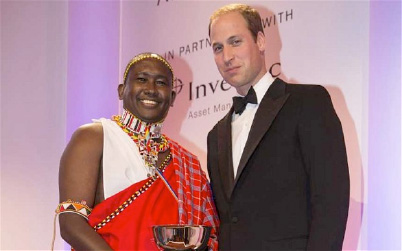Maasai Take Back Their Brand, San and Khoi Ink Benefit Sharing Deal
- Victor Nzomo |
- September 9, 2013 |
- CIPIT Insights

The Atlantic published an article titled: “The Maasai People Take Back Their Brand” in which it highlights the efforts of UK-based non-profit Light Years IP in helping the Maasai “trademark its customs and name and claim a share of profits” made from the use of its name by European companies such as Land Rover and Louis Vuitton. Readers of this blog will no doubt confirm that this misleading article by the Atlantic appears to have gone viral and has been widely shared, re-posted, tweeted and retweeted.
While the Atlantic article continued to flood the internet, the news24 network in South Africa issued a press release announcing that a benefit-sharing agreement was signed between Cape Kingdom Nutraceuticals, the South African San Council (SASC) and the National Khoisan Council (NKC). Michael Stander, Managing Director of Cape Kingdom Nutraceuticals – a Cape Town-based company that acquires and processes the buchu plant in South Africa – is quoted as having said that:
This benefit sharing agreement is a fitting acknowledgment of the wealth of knowledge that was gleaned from the San and the Khoi, who introduced buchu and its various medicinal benefits to the early Cape settlers at the beginning of the 17th century….Cape Kingdom’s buchu products widely benefit people around the country – but this would never have been possible without the initial knowledge of the San and the Khoi. For this reason, Cape Kingdom is proud to sign an agreement which recognises them as the primary traditional knowledge holders of this amazing plant endemic to South Africa.
The exact details of the benefit sharing agreement are not readily available online nor has any news site or blog prepared any in-depth write-up or analysis on this landmark deal.
Comments:
The protection and promotion of traditional knowledge (TK), traditional cultural expressions (TCEs) and genetic resources (GRs) within the African continent has undoubtedly been one of the key intellectual property (IP) related themes of this year. Thus far, this blogger has tracked several developments including the two TK Bills pending before South Africa‘s Parliament, the inclusion of TK protection in Zimbabwe‘s 2013 Constitution and of course, Kenya‘s 2013 draft TK Bill.
On the Maasai IP issue, this blogger has previously shared his sentiments here. However, it must be emphasised that the Maasai community must organise themselves into one unified collective entity that will serve as a proxy in addressing issues of misappropriation and misuse of TK held or associated with the community. In so doing, the Maasai may be in a better position to reap the benefits of the San and Khoi as exemplified by the latter’s recent deal with Cape Kingdom.
In Kenya’s 2013 draft TK Bill, it is proposed that the protection extended to traditional knowledge holders should include the fair and equitable sharing of benefits arising from the commercial or industrial use of an indigenous community’s knowledge. This sharing is to be determined by mutual agreement between the parties. In the absence of such mutual agreement, the Bill empowers the proposed National Competent Authority to mediate between the concerned parties with a view to arriving at an agreement on the fair and equitable sharing of benefits. In this regard, this blogger has argued that such a legal provision would also augur well in the new devolved system of government since county governments would be in a position to enforce the TK legislation in the event of unauthorised exploitation of TK, GR and TCE belonging to concerned communities.
